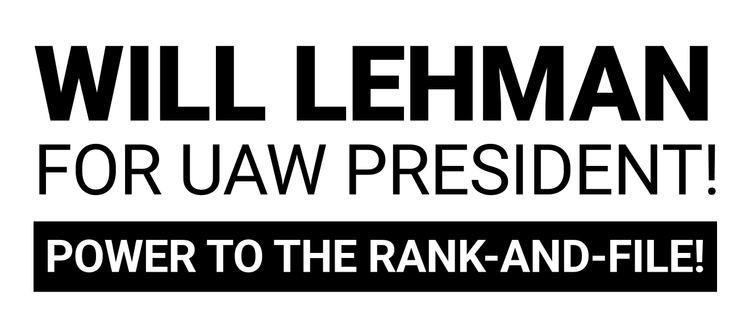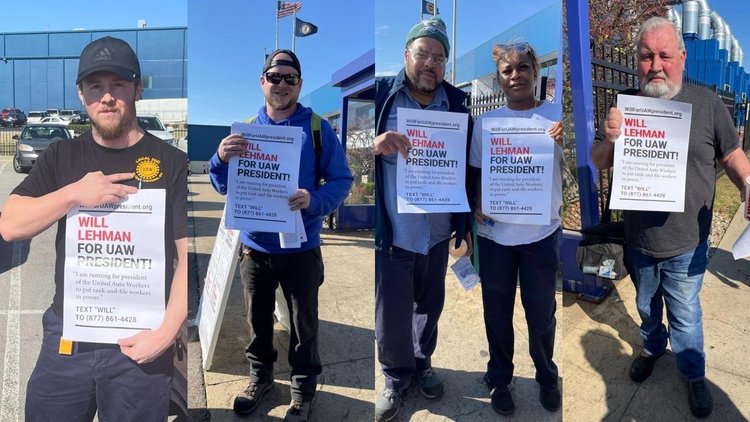Howie Hawkins talks striking in his latest video.
This is C.I.'s "Iraq snapshot:"
Tuesday, December 6, 2022. The Supreme Court hears a case about a homophobe who hasn't been discriminated against but fear she might be one day if she expands her business, more government abuse in Iraq, Will Lehman calls for real UAW elections, and much more.
Alex Bollinger (LGBTQ NATION) reports on yesterday's Supreme Court hearing:
The Supreme Court heard arguments today in a case that could curtail states that seek to ban anti-LGBTQ+ discrimination, 303 Creative LLC v. Elenis.
Lorie Smith of Denver, Colorado owns 303 Creative, a web design business, and she sued the state preemptively to get a religious exemption to the state’s anti-discrimination law because she doesn’t want to make websites for same-sex couples’ weddings.
She says she “believes that God is calling her to promote and celebrate His design for marriage… between one man and one woman only” and her initial complaint – filed in 2016 – cited Bible passages along with legal arguments. Her case is backed by the anti-LGBTQ+ hate group Alliance Defending Freedom.
God's calling her? Does Lorie Smith have a party line? Are there other voices she's hearing in her head?
Today’s oral arguments could be cause for concern for LGBTQ+ advocates as the conservative majority questioned the strength of the state’s case.
Justice Neil Gorsuch, for example, reportedly criticized the arguments of Colorado Solicitor General Eric Olson, saying, “That’s not going to persuade me. Work on something that might” while Justice Samuel Alito said the state had made a “sliver of an argument” and that it was trying to force businesses to “espouse things they loath.”
Justice Alito has also been slammed for making a joke about Black children wearing Ku Klux Klan outfits during the discussion.
It's interesting that the case is being heard at all. Many times, a court will deny a case based on the fact that the one bringing the suit lacks standing. On that alone, Lorie Smith shouldn't get a day in court.
Josh Gerstein (POLITICO) explains:
Part of what sent the justices running to hypotheticals is that the case in front of them is rather sterile. Smith hasn’t actually refused service to any same-sex couple. In fact, she’s never designed a wedding website for anyone. The entire dispute is based on her stated intention to broaden her business to offer sites for impending nuptials and her fear that the state of Colorado will take action against her if she does so while publicly excluding same-sex couples.
After Smith filed suit to head off such action, both sides in the case agreed on certain facts, including a mock-up of a website she planned to offer. Notwithstanding the fact that she says she intends to make a custom site for each couple.
Some justices found the factual foundation for the case unsatisfying, because Smith’s lawyers acknowledge that she could not legally deny same-sex couples a plug-and-play website, so precisely what message she would be conveying in a custom one not yet designed is unclear.
So she might do this. Someday. She might not. The case never should have been heard to begin with. There are people actually effected by laws right now and she is not one of them.
[. . .] University of Pennsylvania law professor Tobias Wolff, who filed a brief in the case siding with Colorado.
"Imagine if the website designer, the cake decorator, the wedding photographer" were to "show up at the wedding and then proceed to say to the people getting married, 'I don't like this part of your vows,' or 'These people can't be in your wedding party because I'm the speaker here.' We would think they were nuts, right?"
Nuts, he says, because these wedding vendors aren't "street corner speakers standing on a soapbox, proclaiming their own message." Instead, they have set up a business "to sell [their] talents in the commercial marketplace, and when you do that, you are placing those talents in service of your customers," Wolff says. "And that's just a very different situation and one that the First Amendment treats very differently."
From last night's THE NEWSHOUR (PBS):
John Yang:
In 2018, the Supreme Court sided with Colorado baker Jack Phillips. He refused to make a wedding cake for a gay couple. That 7-2 ruling was on the narrow grounds that state officials were hostile to his religious beliefs. But Smith is making a different argument, saying that the Colorado law violates her right to free speech.
She says that the government cannot dictate the message that a work of art conveys.
Colorado Attorney General Phil Weiser says, art or not, a business is a business.
Phil Weiser (D), Colorado Attorney General: Anyone, Web site creator, a book writer, a baker can make whatever service products they want to. They then have to sell it to anyone who comes and asks for access to the product or service if they're open to the public.
You could imagine a situation where Jews or Muslims or women are told, I'm sorry, I have a certain expressive interest in providing this product or service. It has to exclude you. You have gutted this basic anti-discrimination concept.
John Yang:
The justices spent about two hours today working through those issues.
Marcia Coyle was there. She's the chief Washington correspondent for "The National Law Journal."
Marcia, thanks for joining us.
Marcia Coyle, "The National Law Journal": Pleasure, John.
John Yang:
One reason, it seemed to me, why this took so long, these arguments took so long, since there are two essential freedoms in the Constitution that are colliding here, protected speech on the one hand and equality on the other.
Marcia Coyle:
Absolutely, John.
And what also complicates this is that both sides disagree on what actually is being regulated here. Is it speech, as the Web site designer claims, or is it a business, as the Colorado government claims? And so the court spent a lot of time struggling with these two principles of anti-discrimination and free speech.
John Yang:
And there was — there was also a question, a lot of questions about, whose speech was it? Whose was really speaking here, the Web site designer or the couple getting married?
Marcia Coyle:
Exactly.
That was something Justice Sotomayor pointed out, because she looked at the Web site designer's mockup of the wedding Web sites that she wants to create. And she went page by page by page and kept saying, it's — this is all about the couple. It's not about your speech. It's about the couple's story. It's not your story.
So, yes, that was very much part of it. Whose speech is this? And the lawyer for Ms. Smith responded, well, book authors tell other people's stories, but it's still their speech.
John Yang:
They also probed the question that we heard the Colorado attorney general talk about earlier, that, where's the line? If you carve out an exception to the anti-discrimination law for this, what else?
And here's Justice Sonia Sotomayor asking that question.
Sonia Sotomayor, U.S. Supreme Court Associate Justice:
But how about people who don't believe in interracial marriage, or about people who don't believe that disabled people should get married? What's — where's the line?
John Yang:
Does this get down to how they write this decision?
Marcia Coyle:
Oh, absolutely, because they're going to have to say, if — if they do rule for Ms. Smith, the Web site designer, they're going to have to say why what she does is different from, say, interracial marriages, for example. Why is it different from race?
And I think both the liberals and the conservatives on the court are very much concerned about this line and where to draw it. And I got the feeling after the argument they really don't have much idea where they're going to draw, at least not now.
Meanwhile, in Iraq, Dilan Sirwan (RUDAW) reports:
Iraq’s Prime Minister vowed to punish corrupt people who are in high
governmental positions, and not only focus on small corruption cases.
While visiting the Iraqi interior ministry on Monday and meeting several
officials of the ministry, Iraqi Prime Minister Mohammed Shia al-Sudani
said that his government will not be busy with small corruption cases,
but rather try to punish corruption on a bigger scale.
“This government will not be busy with small corrupt people, it does not
mean we leave them, there are regulations and legal cases will
continue,” Sudani said, adding that it is the major corrupt officials
that the government needs to adopt a stance against.
“This is an official that makes decision, has major responsibilities,
and is responsible for a large number of employees, they are tasked by
the government to look at this case, if they get out of line and get
corrupt, the matter is not only about me dismissing them,” Sudani added.
“They will be punished in a way that goes with the size of their
responsibility that they have neglected.”
Iraq is ranked as one of the world’s top ten most corrupt countries,
according to a report by Transparency International published in
January. The Berlin-based NGO ranked the perceived levels of corruption
in Iraq as equal to the levels of abuse of power for private gain in
Zimbabwe, Cambodia, and Honduras.
He's going to punish them. How? By making them suffer through Patrick Cockburn's writing? Cockburn 'rediscovers' Iraq today -- in his Christopher Columbus way -- to announce that the 'heist of the century' (2.5 billion of public money stolen by officials) is nothing, why in England . . . Oh, shut up Patrick Cockburn. You're an anti-Arab, you can't report from there anymore because of your well earned reputation. They're suffering and you're dismissing it. Go back to obsessing over Donald Trump and your other garbage topics. While Patrick tells the Arab world yet again that their issues don't matter and aren't as important as what takes place in Europe, ASHARQ AL-AWSAT reports:
The Iraqi judiciary sentenced on Monday an activist to three years in prison for “insulting state institutions” after criticizing the Popular Mobilization Forces (PMF).
In a Facebook post, Haidar al-Zeidi, 24, said he had been previously arrested by the PMF and detained for two weeks before being released on bail.
He can appeal the ruling.
Article 226 of the penal code, which dates back to the Baath era and the rule of late President Saddam Hussein, stipulates the imprisonment of no more than seven years of anyone who openly insults the parliament, government, judiciary, armed forces or any other state institutions.
Penalties may also include detention or fines.
The article had long been criticized by rights and civil groups that have compared it to dictatorial practices.
Zeidi’s sentence was widely condemned by activists, who slammed the PMF for carrying out duties that should be limited to the interior ministry and security agencies.
Head of the Beit Watani (National Home) party, Hussein al-Ghorabi said: “Welcome to dictatorship. Haidar al-Zeidi was sentenced to three years in jail over a tweet criticizing one of the political gods in Iraq. No to the stifling of freedoms.”
Journalist Hamed al-Sayyed said the sentence is “the worst offense against any martyr.”
Let's wind down with this from Will Lehman's campaign:
|
New content at THIRD:
- Truest statement of the week
- A note to our readers
- Editorial: Pack the Court to save the Court
- TV: Where the similarities end
- The Homophobes Head To Court
- Book Talk
- Where's the honor?
- This edition's playlist
- Highlights
The following sites updated:


No comments:
Post a Comment